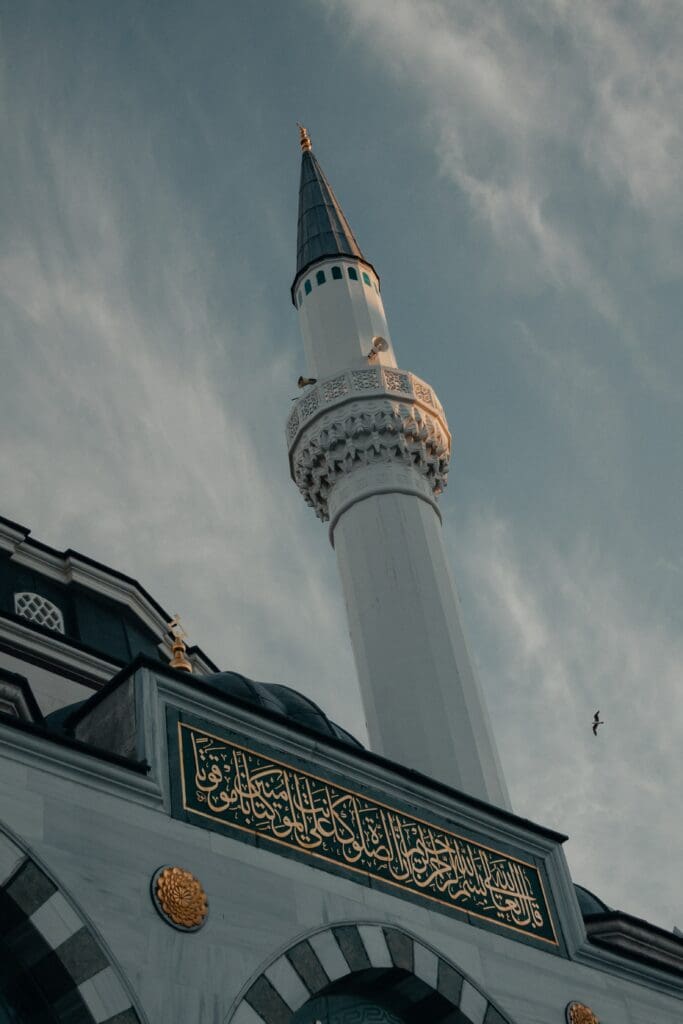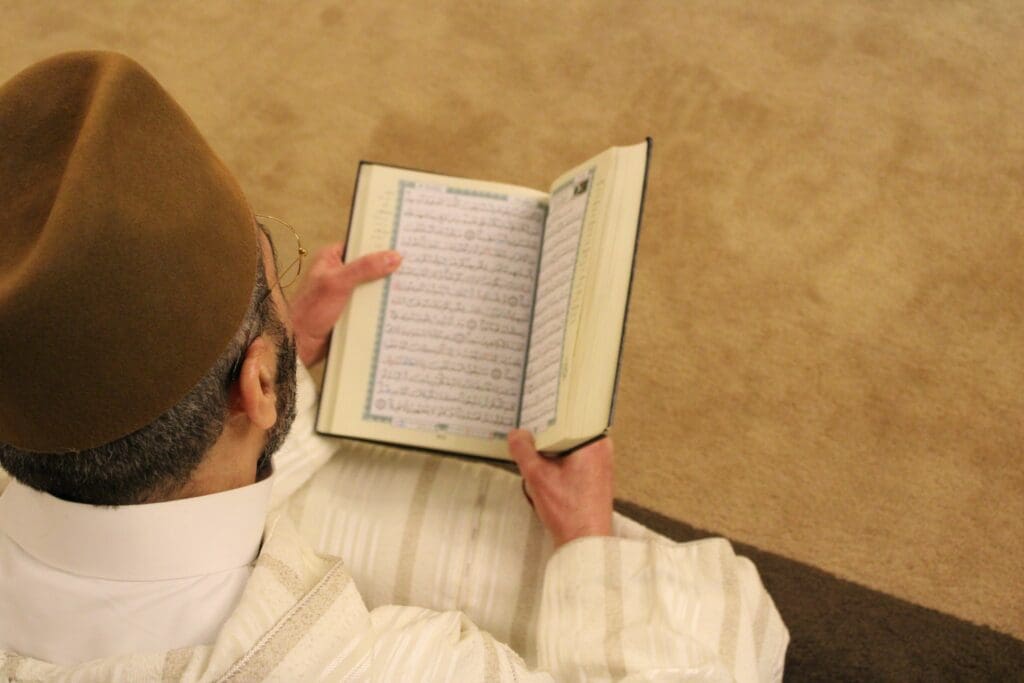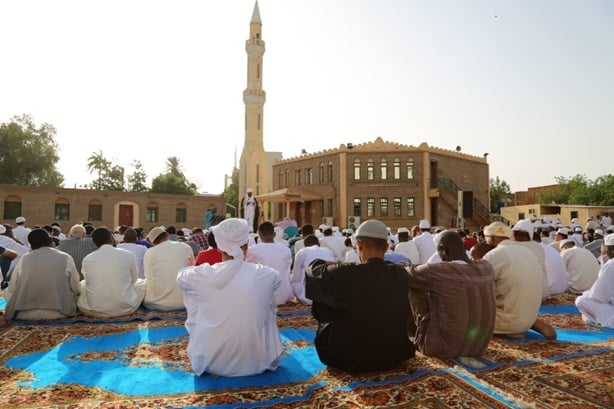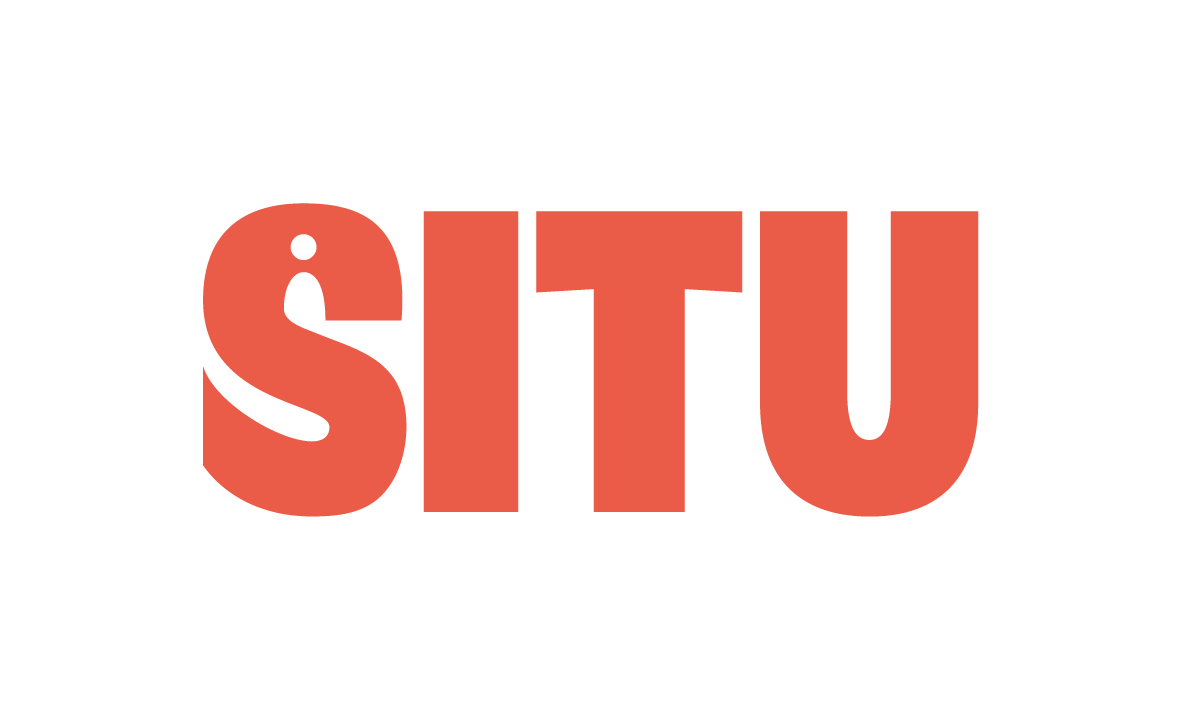Ramadan is the ninth month of the Islamic lunar calendar and is a time of spiritual reflection, self-improvement, and community. Muslims around the world observe Ramadan by fasting from dawn to sunset and refraining from food, drink, and other physical needs during the day.
Did you know, Ramadan was a pre-Islamic month? It indicated the hottest time of year (Islam introduced the lunar Hijri calendar which follows the moon in equal months and has no leap years like the Gregorian calendar).
The root word for this month comes from the Arabic ر م ض which mean ‘scorching heat’ and is closely related to the word ‘parchedness’ or ‘dryness’.
Here’s a guide to help you better understand this important month and its traditions.

What is Ramadan?
Ramadan is one of the Five Pillars of Islam and is a time for Muslims to focus on their spiritual growth and connection with God. Fasting during this month is a way to purify the body and soul, and to become closer to God through prayer and reflection.
When does it take place?
Ramadan takes place during the ninth month of the Islamic calendar, which is a lunar calendar. The exact dates of it vary each year, as the lunar calendar is approximately 11 days shorter than the Gregorian calendar.
In 2023, Ramadan began on the 23rd of March and is to end on the 21st of April with Eid al-Fitr. This is subject to change and slightly differs depending on your location, due to the sightings of the moon.
What happens during Ramadan?
During Ramadan, Muslims fast from dawn to sunset, which includes refraining from food, drink, smoking, and other physical needs.
This is a way to focus on spiritual reflection and prayer. Muslims also spend more time reading the Quran, performing charitable acts, and spending time with family and friends.
The month of Ramadan ends with the celebration of Eid al-Fitr, which is a festive occasion that includes prayer, feasting, and gift-giving.

Who participates?
Ramadan is an important month for Muslims around the world, and is observed by nearly two billion people worldwide. It is a time for Muslims of all ages to come together, focusing on their spiritual growth and connection with God.

Useful tips for non-Muslims
- Be mindful of your Muslim colleagues, friends, and neighbours who may be observing Ramadan.
- If you’re planning a business meeting or social event, be aware that some Muslims may be fasting. Therefore they will be unable to eat or drink during daylight hours.
- It’s important to respect the religious beliefs and practices of others, even if they differ from your own.
- When invited to an iftar (the meal that breaks the fast), it is customary to bring a small gift, dates, or food to share.
Useful phrases
Ramadan is a special time for Muslims around the world. Using Arabic phrases during this month can help you connect with the Islamic community, while showing respect for the customs and traditions.
Here are some popular Arabic phrases that you can use during Ramadan:
- Ramadan Kareem (رمضان كريم) – This is a greeting that means, ‘Generous Ramadan’. It is commonly used to wish someone a happy and blessed Ramadan.
- Ramadan Mubarak (رمضان مبارك) – This is another greeting that means, ‘Blessed Ramadan’. It is also used to wish someone a happy and blessed Ramadan.
- Suhur (سحور) – This is the pre-dawn meal that Muslims eat before beginning their fast. You can use this phrase to ask someone if they have had their Suhur yet.
- Iftar (إفطار) – This is the meal that Muslims eat after sunset to break their fast. You can use this phrase to ask someone if they are going to have Iftar with their family or friends.
- Alhamdulillah (الحمد لله) – This is an Arabic phrase that means, ‘All praise is due to God’. It is commonly used to express gratitude and thankfulness.
- Masha’Allah (ما شاء الله) – This is an Arabic phrase that means, ‘God has willed it’. It is often used to express admiration or awe.
- Insha’Allah (إن شاء الله) – This is an Arabic phrase that means, ‘God willing’. It is often used to express hope or a desire for something to happen.
Ramadan is a time of spiritual reflection, self-improvement, and community for Muslims around the world. Understanding the significance of this month and respecting the religious beliefs of others helps to create a more inclusive society.

